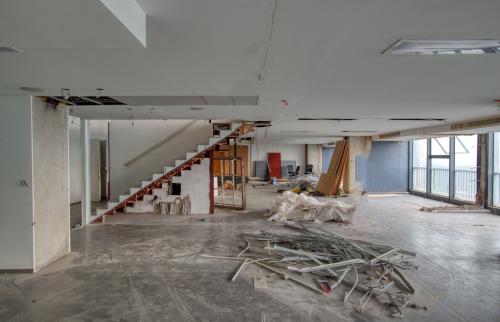Thank you for the invitation to speak today. It is a pleasure to return to Seattle and the University of Washington
These are challenging, tumultuous times for our nation.
The “Great Recession” has dramatically disrupted the lives and livelihoods of tens of millions of our fellow citizens through lost jobs, foreclosed homes, diminished incomes, and vanished wealth.
The recovery, we now know, will be long, messy and uneven. Key sectors of the economy—housing, finance, manufacturing, trade—have been hard hit. American consumers are spending less, saving more. There will be no “return to normal,” since what preceded the downturn was anything but normal.
At the same time, a confluence of events—an ambitious president, urgent energy and environmental imperatives, brutal fiscal challenges, and deeply rooted demographic and social trends—has set the conditions for the kind of historic, national “reset” we witness once or twice a century.
History teaches us that crisis begets innovation.
Our collective challenge is to rise to this moment and master its possibilities.
As U.N. Secretary Ban Ki Moon has admonished, “This is not a time for tinkering, this is a time for transformation.”
In that spirit, I want to discuss “what comes next” for this metropolis and this nation. To be specific, I want to describe how Greater Seattle can use this crisis to advance a new kind of growth and a new kind of governing and seize the possibilities of a new era.
I want to make four major points today.
First, in the midst of rising unemployment, increasing poverty and battered industries, the shape of the next economy is slowly coming into view:
- It will be a lower carbon economy, as we struggle with the existential threat of global warming.
- It will be innovation led, as we strive to make quantum leaps on everything from clean technology and renewable energy to high speed rail, the smart grid and health care information technology.
- And it will be less driven by domestic consumption and more oriented towards exports, particularly to rising nations that are rapidly urbanizing and industrializing.
This economic transition, of course, will have winners and losers, across places and individuals. But it raises the tantalizing prospect for the kind of productive, inclusive, and sustainable growth that has eluded America over the past several decades.
Second, the next economy will be metropolitan led. This is, in essence, a “Metro Moment” for the U.S. and the globe. Metropolitan areas, here and abroad, are the unequivocal engines of national prosperity because they concentrate at an unprecedented level the assets that matter, assets like innovation, human capital, infrastructure, and quality places. There is, in essence, no U.S. or German or Chinese economy but rather a network of sophisticated, hyperlinked and globally connected metro economies.
Third, Greater Seattle is well positioned to take advantage of this Metro Moment… and you are already taking steps to do so. You are a gateway for trade, commerce, and migration. You are a center of knowledge, advanced manufacturing and technological innovation. You are a magnet for talent and creativity of all kinds. You are a recognized leader on climate and energy. The challenge now is for the metro to act like a metro and pull all this together… to set a more cohesive vision for the future, identify and prioritize the most transformative investments and interventions and execute with focus and discipline over a sustained period.
Finally, Greater Seattle, like all U.S. metros, cannot go it alone. The “Two Washingtons,” DC and Olympia, must become true strategic and accountable partners and embrace a 21st century “Metro Policy,” placing their policies squarely in the service of metropolitan prosperity. That’s a tall order since these levels of government have spent most of their time over the past several decades treating their metropolitan engines as “cash cows” rather than investment opportunities. But change is happening, particularly at the federal level, which has the potential to finally treat the U.S. as a “Metro Nation.”
The Brookings Institution is committed to quality, independence, and impact.
We are supported by a diverse array of funders. In line with our values and policies, each Brookings publication represents the sole views of its author(s).



Commentary
The Great Recession: What Comes Next for Our Metro Nation
October 15, 2009